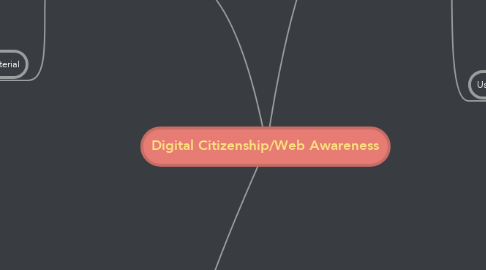
1. Authenticity of Resources
1.1. Reliability
1.1.1. Page Authorship
1.1.1.1. Author Expertise
1.1.1.2. Publisher Reputation
1.1.2. Relevance
1.1.2.1. Depth of Information
1.1.2.2. Objective or Biased?
1.1.3. Accuracy
1.1.3.1. Latest Update
1.1.3.1.1. Currency
1.1.3.1.2. Links to Extant Sites
1.1.3.2. Spelling Mistakes
1.1.3.3. Peer Reviewed
1.2. Validity
1.2.1. Email
1.2.1.1. Valid Address
1.2.1.2. Verified Sender
1.2.2. Websites
1.2.2.1. Clear Domain Names
2. Internet Safety
2.1. Privacy
2.1.1. Change Settings
2.1.1.1. Strong Passwords
2.1.1.1.1. Never Share Them
2.1.1.2. Parental Controls
2.1.2. Personal Information
2.1.2.1. Real Info
2.1.2.1.1. Addresses
2.1.2.1.2. Names
2.1.2.1.3. Phone Numbers
2.1.2.2. Trust No One
2.1.2.2.1. May be Criminals
2.2. Explicit Material
2.2.1. Pornography
2.2.1.1. Legal
2.2.1.2. Hard to control
2.2.2. It is Everywhere
2.2.2.1. Music
2.2.2.2. Television
2.2.3. Responses to Viewing
2.2.3.1. Filters
2.2.3.2. Teach Media Literacy
2.2.3.2.1. Direct to Clean Sites
2.2.3.3. Clear Rules on Porn
2.2.3.4. Talk About Event
3. Ethics
3.1. Digital Etiquette
3.1.1. Manners
3.1.1.1. Bad
3.1.1.1.1. Flamewars
3.1.1.1.2. Trolls
3.1.1.2. Good
3.1.1.2.1. Re-read
3.1.1.2.2. Ask Permission
3.1.2. Internet not Private
3.1.2.1. Posts can/will be found
3.1.3. Cyber Bullying
3.1.3.1. Amanda Todd
3.1.3.2. Social Media
3.2. Digital Footprint
3.2.1. Digital Reputation
3.2.1.1. Expression of Self
3.2.1.2. Changes Over Time
3.2.2. People Found Easily
3.2.2.1. Google
3.2.2.2. Facebook
3.2.2.3. Twitter
3.3. Using Technology Wisely
3.3.1. "Think Before you Click"
